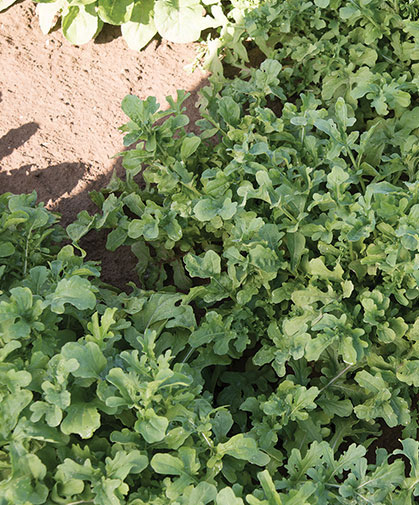Arugula - Key Growing Information
SCIENTIFIC NAME:
Eruca sativa, Diplotaxis spp.CULTURE:
Arugula prefers a fertile, well-drained soil, with a pH range of 6.0-6.8 in full sun to part shade. Can be grown all season in the field. Most varieties are hardy enough to grow in cool greenhouses and high tunnels during winter from late summer and early fall sowings. DAYS TO MATURITY:
From emergence after direct seeding. Typically germinates within 5-7 days. DIRECT SEEDING:
Sow 1/8" deep at 5 seeds/inch in rows at least 2" apart from early spring onward. AVG. DIRECT SEEDING RATE:
For Salad types: 500'/oz., 8,000'/lb. For Wild types: 2,100'/oz., 34,240'/lb.SUCCESSION PLANTING:
For a continual supply, sow about every 2 weeks until 2-3 weeks before the first frost. INSECT PESTS:
Flea beetles can be controlled by covering the crop with floating row covers from the day of sowing. DISEASE: Prevent diseases with crop rotation and sanitation.HARVEST:
Harvest with a knife when leaves reach desired size, about 3-6". Cut about an inch above the soil to allow for clean regrowth, making sure to cut above the basal plate. Cut again when plants are at desired size, 5-14 days depending on variety. After plants flower, the leaves can still be used, but taste is sharper. Flowers are also edible. SEEDS/OZ.: Salad types: Avg. 15,400 seeds/oz., sows avg. 500'. Wild types: Avg. 100,700 seeds/oz., sows avg. 2,100'. PACKET:
500 seeds. Wild type sows 10'. Salad type sows 16'.


